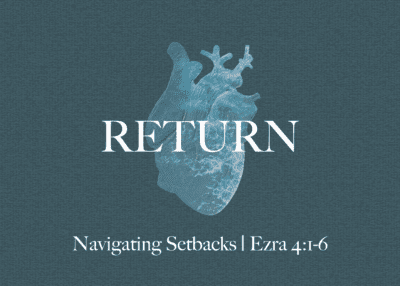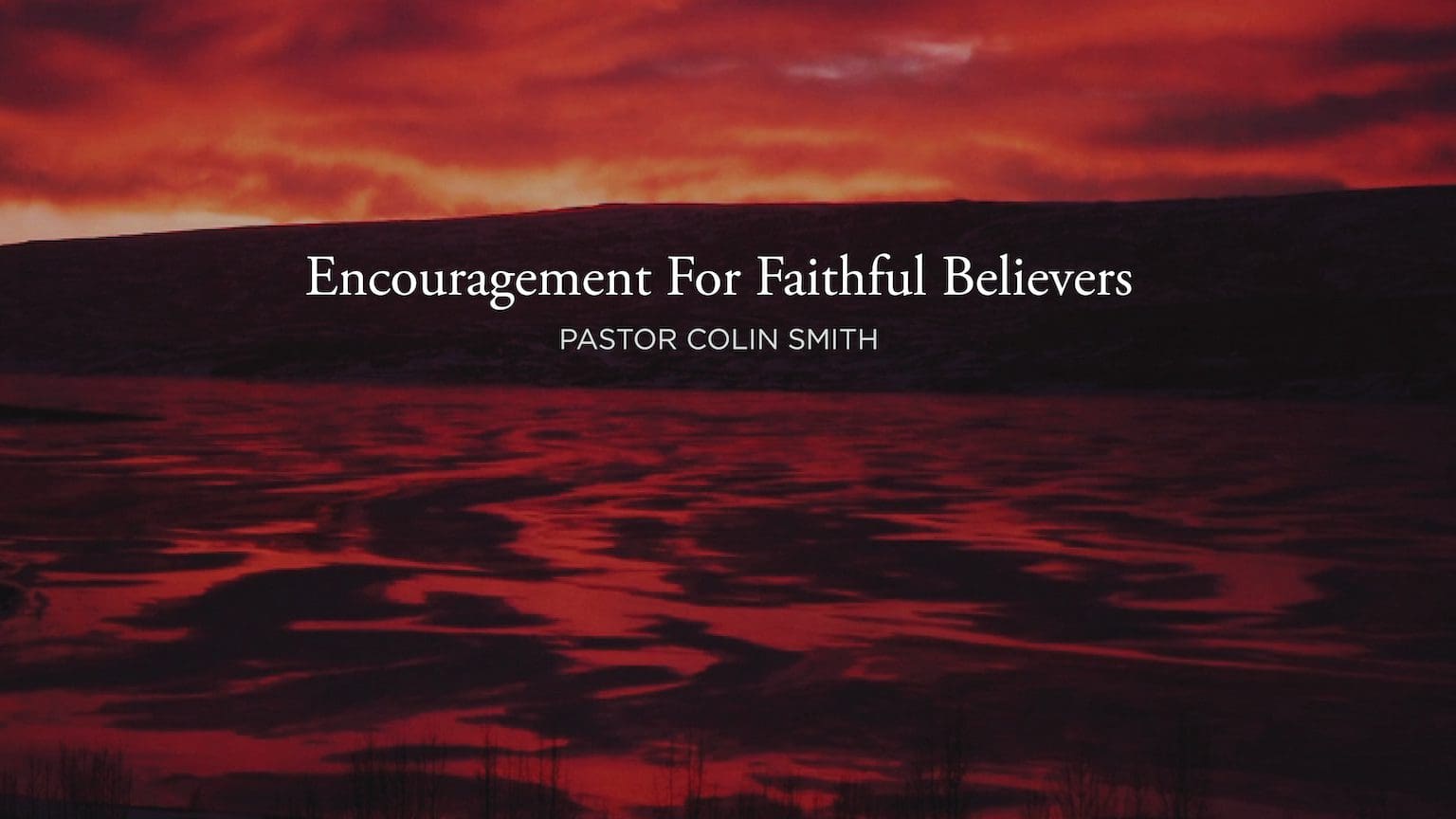They said to the woman, “It is no longer because of what you said that we believe, for we have heard for ourselves, and we know that this is indeed the Savior of the world.” (John 4:42)
We come today to the second part of this marvelous story of a woman whose life was changed forever by Jesus Christ, and whose witness led to an entire community coming to believe in Jesus.
I cannot think of a story that brings greater encouragement for us in the work of ministry than the words that are before us today.
- If you are tired, jaded or discouraged today, wondering whether the effort that you put into serving the Lord is worth it, these verses will be a tonic to your soul today.
- If you have been wounded while serving the Lord, and now you are holding back from giving yourself to ministry, these verses hold the most marvelous incentive for you.
- If you find yourself afraid of what might happen if you commit yourself more fully to following Jesus, these verses are for you.
- If you have a desire to extend yourself more fully in serving the Lord, to discern how you can make the best use of your life for his glory, these verses are for you.
To summarize the story thus far, Jesus was traveling from Judea (in the south) to Galilee (in the north) and his journey took him through Samaria.
- Samaria was not a place where you would expect to find people interested in following Jesus.
- Our Lord was born a Jew, and there was a long history of hatred between the Jews and the Samaritans.
- The Samaritans had their own religion, and while there were elements of truth in it –this woman knew that the Messiah would come (4:25) – it was buried under a heap of idolatry and superstition.
This woman had lived a life that was far from God and far from his commandments. If you were looking for prospects of people who might become disciples of Jesus, this woman was the least likely person in the least likely place.
Today, we come to the sequel to this great story. At this point in the story, the disciples had just come back from the city. They had gone there to buy food (4:8), and that is why Jesus was alone with this woman at the well.
The disciples returned and were surprised to see Jesus talking with the woman, but none of them said anything. The woman then went back into the city, where she began to speak to others about Jesus: “Come, see a man who told me all that I ever did” (4:29).
While this was happening, John tells us about a remarkable conversation that took place between Jesus and the disciples that I hope and pray will bring blessing and encouragement to every believer today.
Give Yourself to God’s Work…
and You Will Have Great Joy
When the disciples left Jesus, he was weary from the journey (4:6). They went into the city to buy food because all of them were hungry. But when they come back with the food, Jesus shows no interest in eating.
Picture the disciples now sitting beside the well, eating their lunch. But Jesus is energized. He is walking around. His mind is clearly somewhere else, and he shows no interest whatsoever in sitting down for the lunch that they have just bought. The disciples were urging him, saying, “Rabbi, eat!” (4:31). You sense the frustration they have with him.
The disciples didn’t know what to make of it: “What is this? When we leave him, he is tired and weary. When we come back less than an hour later, he is energized, animated, fired up, refreshed, reinvigorated and full of joy! What has happened?”
Then Jesus says to them, “I have food to eat that you do not know about” (4:32).
So the disciples asked one another: “Has anyone brought him something to eat?” (4:33). “Did someone show up while we were away and give him his lunch already?”
Jesus said to them, “My food is to do the will of him who sent me and to accomplish his work” (4:34).
Jesus is saying this: If you do what God wants you to do and serve where God wants you to serve, it will be like food for your soul. Years ago, I heard this phrase from Warren Wiersbe:
“Ministry is nourishing.” Give yourself to the work of God and your own soul will be fed.
This is not the only truth about ministry. If you give yourself to the work of God, you will also find that there is a cross to carry and there is a cost. These truths belong together.
Think about the birth of a child: There is great pain, but the pain is overwhelmed by great joy. Doing the will and work of God may bring you great pain, but it will also bring you the greatest joy.
Jesus was tired, weary, and hungry. He could easily have ignored this woman. He could have smiled and said something about the hot weather. But he extended himself to reach out to this woman. He gave himself to win her with faith, hope, and love. And what came from this was that Jesus himself was refreshed, renewed, energized, and filled with joy!
Many years ago, at a time when I was jaded and quite discouraged, someone sent me a card with a verse from Proverbs that helped me then and has stayed with me ever since: “Whoever refreshes others will himself be refreshed” (Prov. 11:25 NIV, 1984).
So here is the principle: If you hold yourself back from ministry to others, your soul will run dry. But if you extend yourself in ministry to others, you will be blessed and you will experience great joy.
Give Yourself to God’s Work…
and You Will See Him Move in Ways You Did Not Expect
“Do you not say, ‘There are yet four months, then comes the harvest’? Look, I tell you, lift up your eyes, and see that the fields are white for harvest.” (John 4:35)
There is a great deal of discussion in the commentaries about “four months until the harvest.” Is this an indication of the time of year? Probably not. If it was, the weather would be cool and the fields would be wet. Was it a popular saying? There is no evidence of this being a common proverb at the time.
I suspect that this was a line that was repeated by the disciples: “Do you not say…” We all know how this happens. You go on vacation and someone says something, and it catches on and becomes a running refrain throughout the group. All the people who were there get what’s being said, though it may not mean much to anyone else.
“There are yet four months, and then the harvest” reflects a mindset that says, “We need to take things slowly.” It is a cautious mindset: “Don’t expect too much and then you won’t be disappointed.”
Jesus is saying, “You are always saying, ‘Four more months until the harvest.’ In your mind, the harvest is always on another day, another place, another time, but I tell you lift up your eyes and see that the fields are white for harvest” (4:35). What does that mean?
Jesus and the disciples were at the well, and as Jesus was speaking, the people who had heard the testimony of the woman, “went out of the town and were coming to him (4:30). Looking across the fields and back towards the town, Jesus saw this large crowd of people coming toward him. They would be wearing white robes, especially on a hot day.
So Jesus says to the disciples: “Look, here is the harvest coming towards us right now! Lift up your eyes and see that the fields are white for harvest.”
Remember that this spiritual movement is happening in a small town in Samaria, the most unlikely place for a spiritual movement to take place (you would think).
- Think about a place in the greater Chicago area where you think it would be really tough to plant a church. You are thinking about Samaria.
- Think about an area in this country that you think is least likely to be responsive to the gospel. You are thinking about Samaria.
- Think about a country in the world where you think people are least likely to come to the Lord. You are thinking about Samaria.
- Think about a person you know or have been praying for who seems far from God and far from any interest in the gospel. You are now thinking about Samaria.
What happens in this story is that the least likely person in the least likely place comes to faith in Jesus and, as a result, there is a spiritual awakening and a whole community is stirred with interest in the gospel.
Again, it is not always like this. There were other times when Jesus went into a Samaritan village and the people did not receive him. They would not even let him in. There is an example of this in Luke 9:51ff. Give yourself to ministry and there will be disappointments, but you will also see God at work in ways that you did not expect!
Sometimes the people you think will be most interested in the gospel turn out to have no interest at all. Often, the people you might think would have no interest in Christ will become the most devoted and the most fruitful followers of the Savior.
Who would have thought that this woman would be the means of an entire community coming to faith in Christ? Who would have thought that Saul of Tarsus, who persecuted the church, would become the spearhead of world mission in his generation?
I want us to receive this as encouragement to go on extending ourselves in ministry today. Give yourself to the work of God and you will see him move in ways that you did not expect!
We are in the process of extending ourselves in the work of God by launching the Northfield campus, and church planting in Albania. Many of you are pushing beyond your comfort zone in giving and in serving because you have a strong desire to do the will and the work of God. As you give yourself to God’s work, you will see him move in ways you did not expect.
Notice how this community was reached: Someone went across a cultural barrier and shared the gospel with this woman, and her life is wonderfully changed. Then this woman went back into her own culture, where she was known by others, and many people come to faith in Jesus Christ as a result of her testimony.
Give Yourself to Any Part of God’s Work…
and You Will Share in the Reward of the Whole
“Already the one who reaps is receiving wages and gathering fruit for eternal life, so that sower and reaper may rejoice together.” (John 4:36)
Notice especially the words “that sower and reaper may rejoice together.” Normally the work of sowing and reaping is separated by many months. Sowing naturally happens in the spring and reaping begins in the fall. Reaping is rewarding – they get all the fun. But sowing is just hard work – there is no immediate reward for working.
But Jesus says here that the sower and the reaper rejoice together! The point is that on that day in Samaria, the long interval between sowing and reaping was shortened. Jesus sowed in the life of the woman at the well, and there was an abundant harvest of a whole community coming to Jesus, and it has all happened within the space of about an hour!
There is wonderful encouragement for sowers here.
You do not know what God will do in a person’s life after you have sown the seed. Whatever comes of it, you will share the joy and the reward. The reward is not for reapers only. It is for those who did the sowing as well!
You will only see a small part of what God will bring from what you have sown in this world –your life, your testimony, your faithfulness in serving and in giving and in going and in speaking and in praying. But one day all of it will be revealed. There will come a day when all of the sowers and all of the reapers will rejoice together with Jesus over all that he has done through all of his people.
We all have different parts to play in this great work of God in the world. Some sow, others reap, but the joy and the reward of the harvest belong to both! Give yourself to any part of God’s work and you will share in the reward of the whole!
There is also encouragement for reapers here.
Notice Jesus says, “For here the saying holds true, ‘One sows and another reaps.’ I sent you to reap that for which you did not labor. Others have labored, and you have entered into their labor” (4:37-38).
I sent you to reap! So stop saying, “Four more months till harvest.” Quit telling yourself that people in a secularized culture are no longer interested, and that no one will respond. That’s simply not true! There are always people who are ready to hear the gospel and respond to Christ. You don’t know who they are and if you tried to guess you would probably be wrong!
There are people in your sphere of influence who may be more ready to coming to faith in Jesus Christ than you might think. The only way you can find out who they are is to tell everyone you can.
None of us knows what God may have done in the life of another person already. Someone else may have ‘labored’ in the life of your friend or neighbor. Someone else may have done the hard work of prayer and of sowing the seed of the Word. They did not see a harvest, but unknown to you, the seed was planted, and you may have the joy of reaping that for which you did not labor.
How could you know if that woman in your office has a mother who has been praying for her every day for the last 10 years? How could you know if your neighbor once had a Christian friend who made a deep impression on her for good? The joy we have in sharing the gospel is that you never know what God has done before, and you never know afterward what God will do as a result of you sowing the seed.
The Principle of Grace
“One sows and another reaps.” (John 4:37)
There is a principle of law in the Bible that says, “You reap what you sow.” “Do not be deceived: God is not mocked, for whatever one sows, that will he also reap” (Gal. 6:7). Sow to the flesh and from the flesh you will reap destruction (Gal. 6:8). If that was all we had in the Bible, none of us could have hope before God.
But there is also the principle of grace. “Here the saying holds true: ‘One sows and another reaps.’” Grace means that you can reap what someone else has sown. The heart of the gospel is that we get to reap what Jesus has sown.
Thank God that the principle of grace is bigger, greater and stronger than the principle of law. Here is good news for every person today. You do not need to reap what you have sown. You can reap what Jesus has sown!
Jesus did the great work of living that perfect life, and then of laying it down for you. He labored and toiled and suffered and died to sow the seed; we get the joy of reaping eternal life through faith in him. The pain was his; the blessing is ours. We reap that for which we did not labor (4:38).
Our ministry is to bring in the harvest that Christ has sown. We get the great reward of gathering fruit for eternal life, so that Christ, the sower, and we, the reapers, may rejoice together in his promises, with an inexplicable joy forever and ever.




